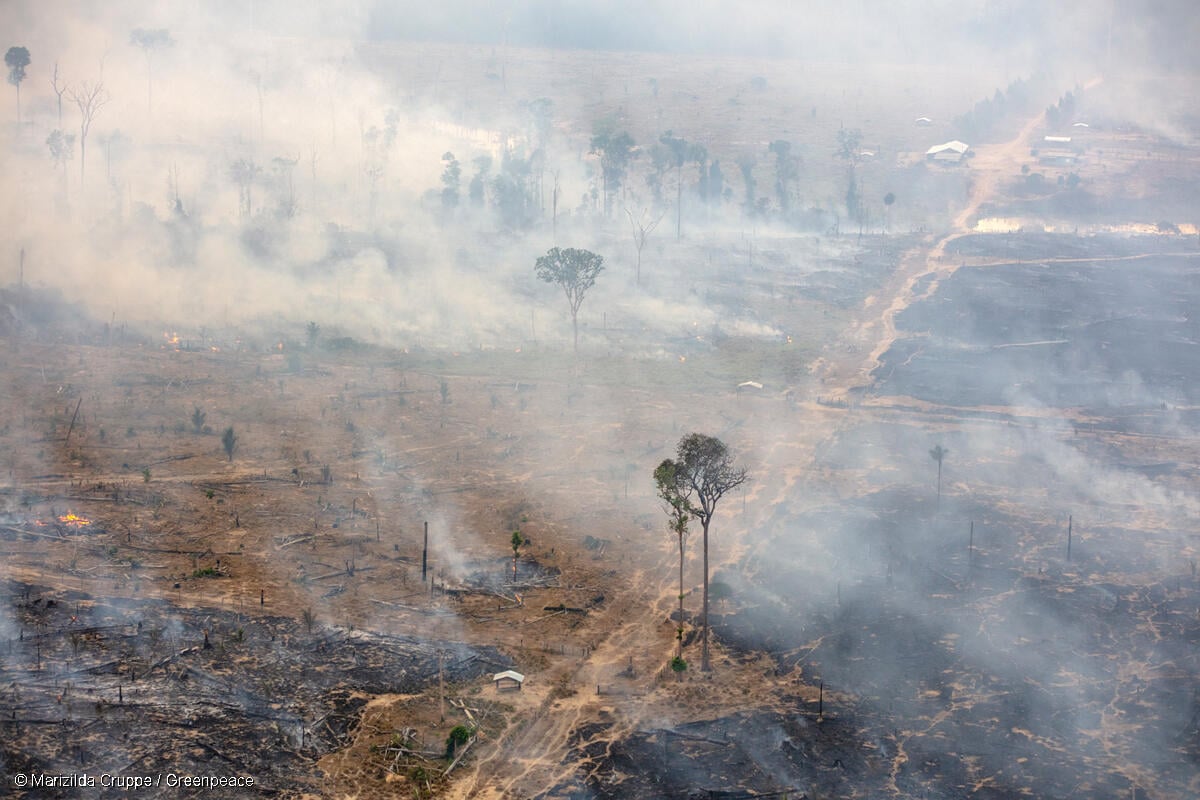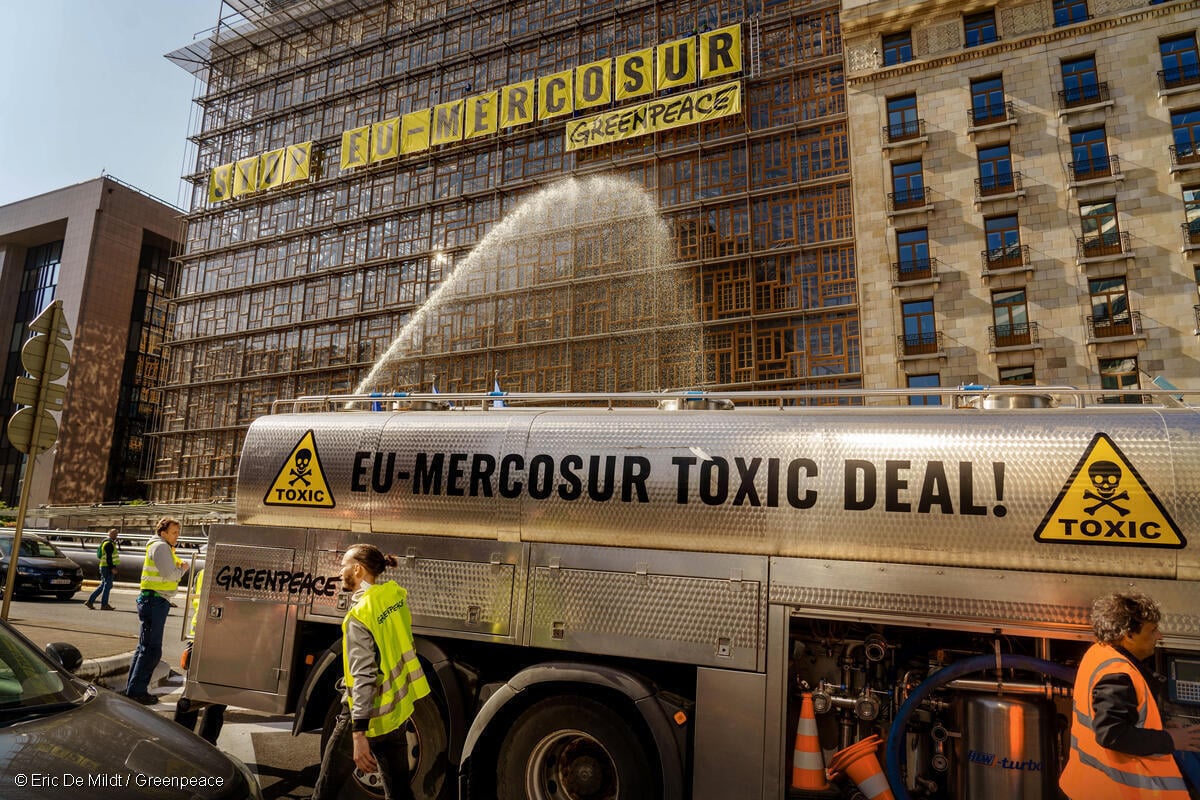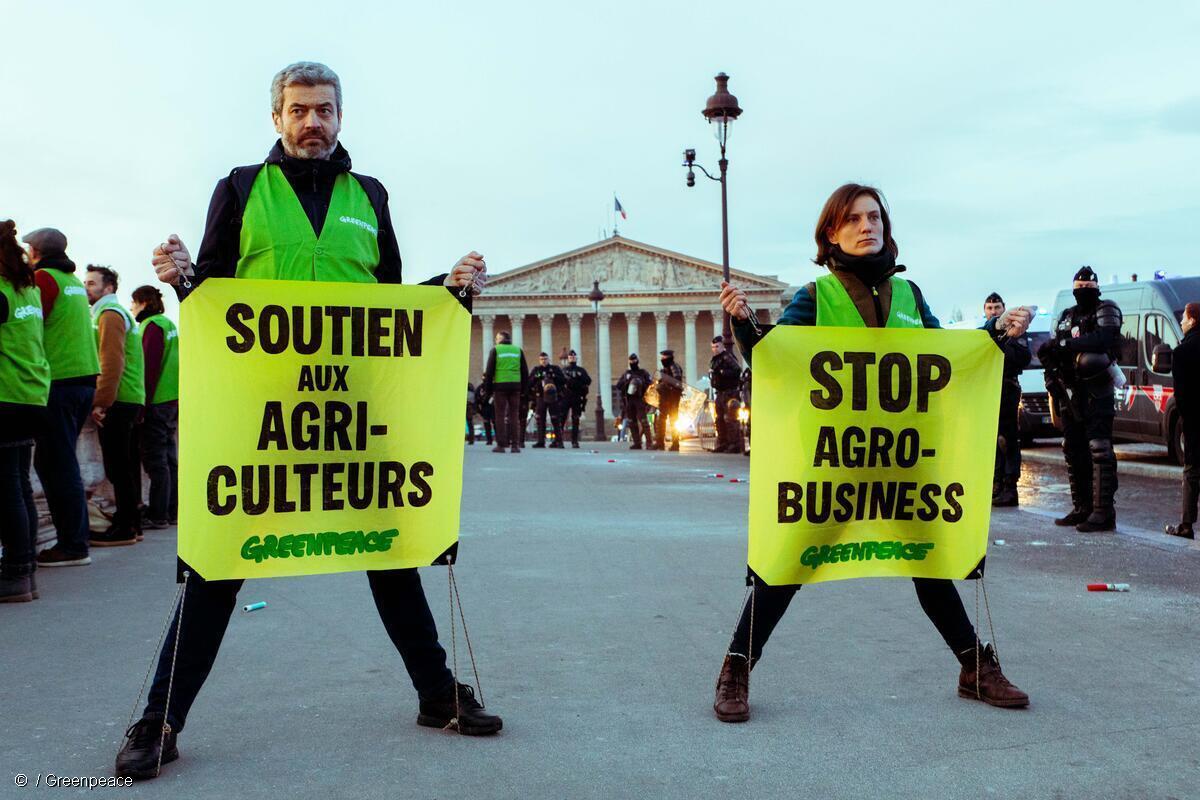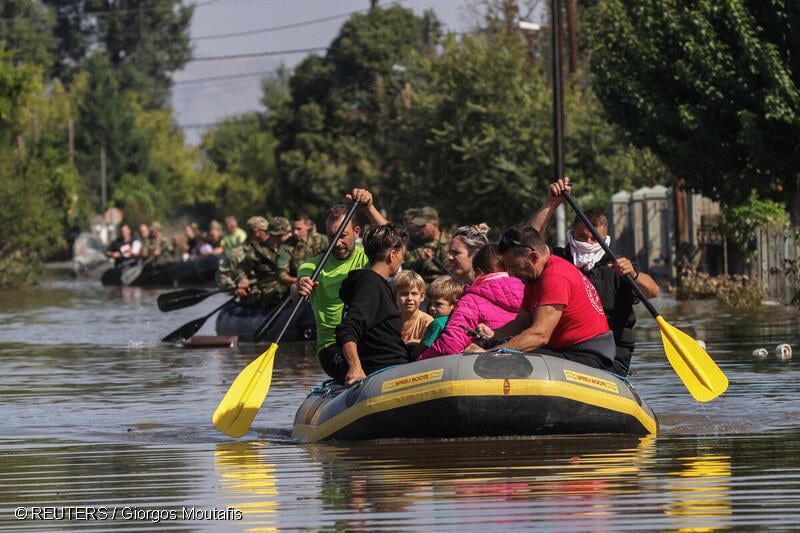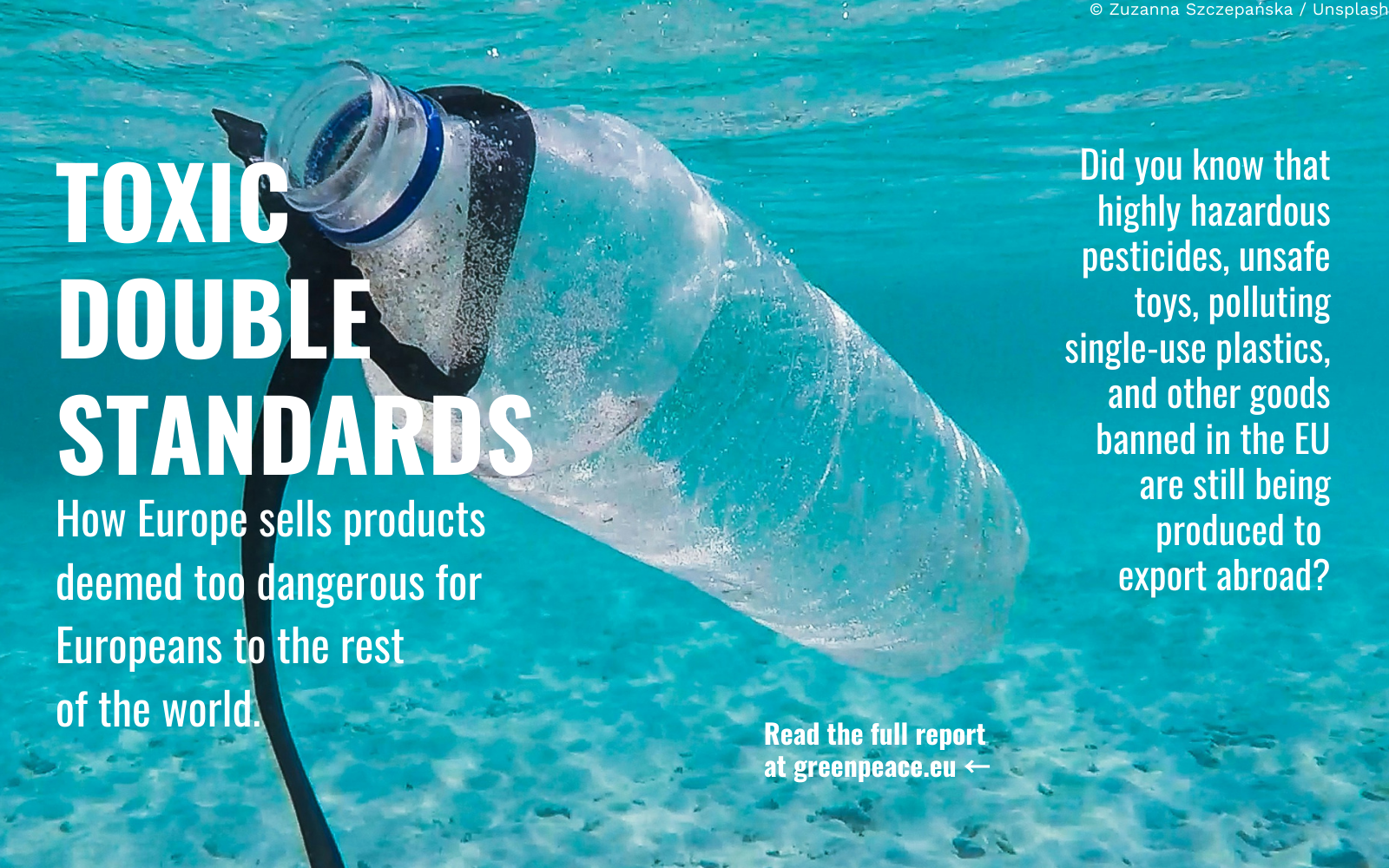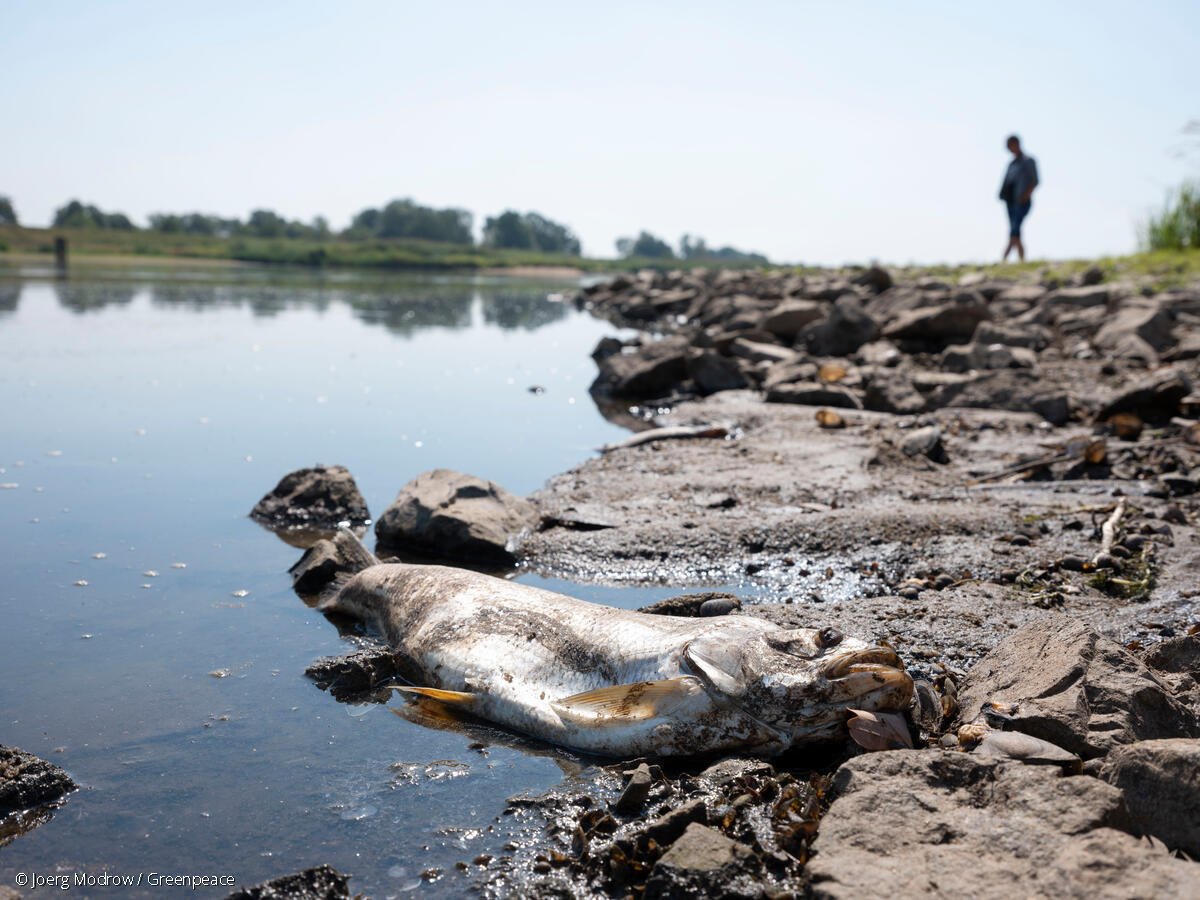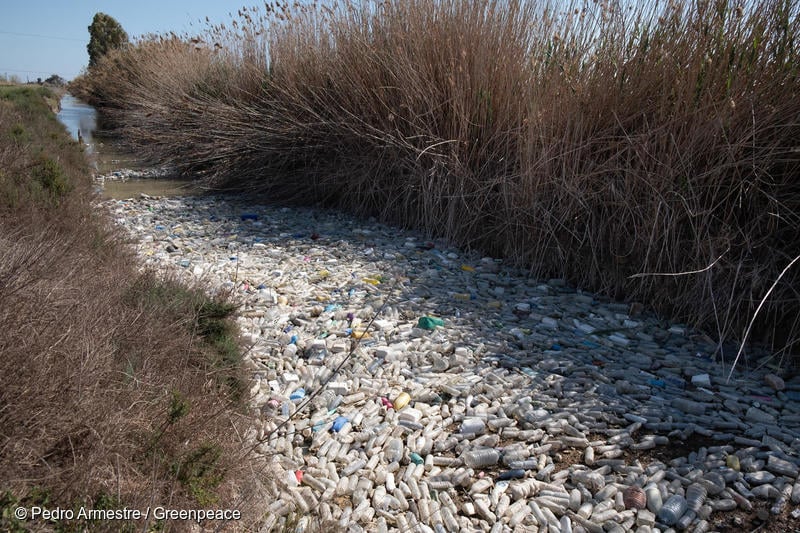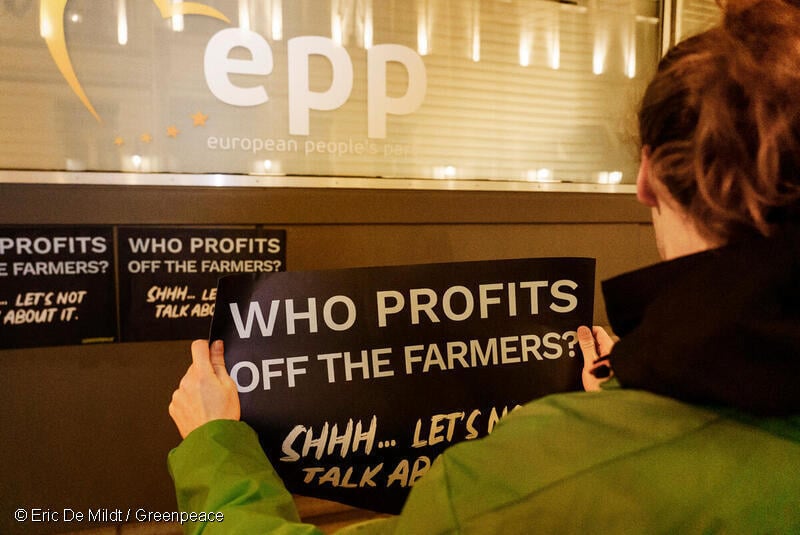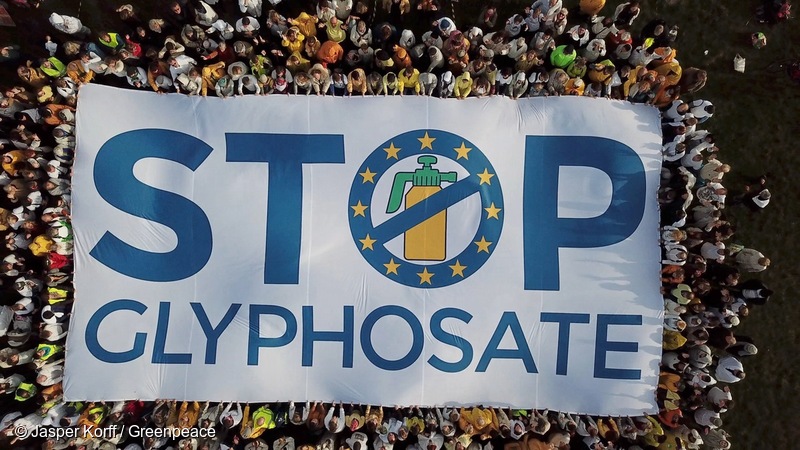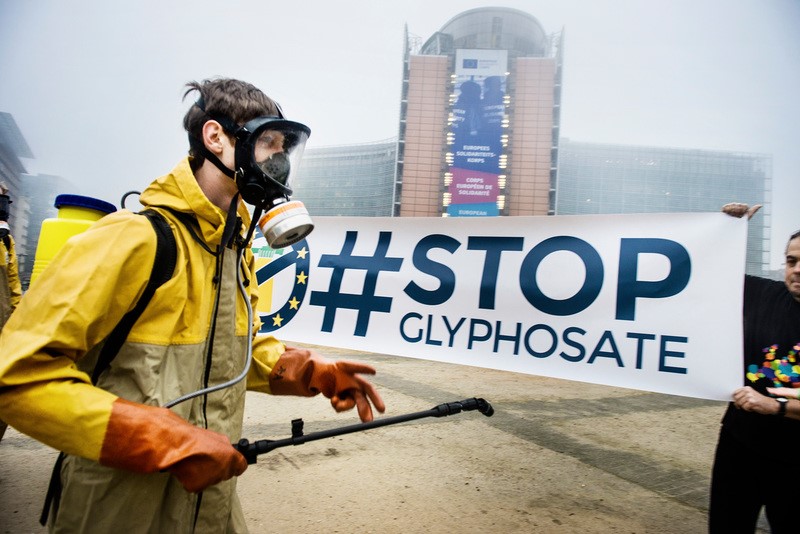All articles
-
EU deforestation law to be delayed as new threat emerges from EU-Mercosur trade deal
The EU's deforestation law will be delayed after right-wing attempts to gut it failed, but the EU-Mercosur trade deal could still deal the deforestation law a fatal blow
-
Toxic EU Mercosur trade deal agreed
Greenpeace calls on all policy-makers throughout Europe and Mercosur countries to listen to the widespread public opposition and vote against this toxic trade deal.
-
Want to do something good for farmers? Stop the EU-Mercosur trade deal
Farmers are some of the most vocal opponents of the EU-Mercosur free trade agreement, fearing the impact it would have on their livelihoods. They are right.
-
Which way will wind blow as new EU Commission enters troubled waters?
The new European Commission endorsed by the European Parliament on Wednesday will face an early test of its political direction as it prepares to navigate choppy seas.
-
“Cruel” trade loopholes let European companies export toxic products banned from EU market
More than 100 organisations call on the EU to close "hypocritical, cruel unfair and intolerable" trade loopholes.
-
Open letter by civil society on the rollback of green measures in the EU
With only a month to go until European elections, over 140 civil society organisations are raising the alarm in a new open letter about a broad attack on many of the EU’s flagship green measures and commitments.
-
EU summit: competitiveness miracle cure erases social and environmental programme
Living standards and nature are under threat from the latest EU competitiveness drive, which government leaders are expected to announce at a summit in Brussels on Wednesday and Thursday.
-
Farmers are right to protest — but Green Deal is wrong target
Farmers across Europe are struggling and are hitting the streets to protest. But when politicians and big agriculture lobbies blame Europe's green legislation, they are not only misleading farmers, they are risking their survival.
-
EU must withdraw licence for toxic glyphosate considering flawed EU approval system for pesticides
Brussels, 14 November 2023 – Greenpeace is calling on European governments to vote against the licence renewal for glyphosate, an ingredient in weed killers, considering the latest scientific evidence and the flawed EU pesticide approval system.
-
Commission tries to extend use of toxic glyphosate beyond 2023 – Greenpeace
Brussels, 12 October 2023 – EU government representatives will meet on 12-13 October to discuss and vote on a European Commission proposal for a ten-year licence for controversial weedkiller glyphosate.…

